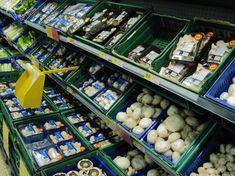
English mushroom growers need to re-think their operations, if the industry wants to protect market share, according to a study by Warwick HRI.
The report, written by John Fenlon, recommended greater co-operation between the 100 or so producers which annually provide some 55,000 tonnes of cups, buttons and flats. Speciality mushrooms, meanwhile, appear to be in better shape.
In mainstream terms, apart from facing increased competition from Ireland, Holland and most recently Poland, UK growers are seen to be disadvantaged in a number of areas.
Methods of production differ widely, there are few management skills and marketing is fragmented, said the report.
Some 12 companies account for 90 percent of sales mainly through the multiples, and more than half are owned by either Dutch or Irish operators.
Against this background fierce competition has relegated mushrooms to a commodity product and, to do business, farms must provide crops at levels which can match imports for value. The result is the retail ticket of £1.96 kg has not changed for six years.
Production has also contracted, with many farms no longer having the ability to expand, and at the same time labour costs have risen, although the reports said saving could be made if automated picking could be developed.
While the market continues to expand, through imports, and is worth £170 million, UK growers now only account for 53 per cent.
It will be up to the industry to come up with its own salvation, but the report suggested that one route would be for it to reorganise itself in a more structured format which separates composting, growing and marketing - as well as working more closely together.



